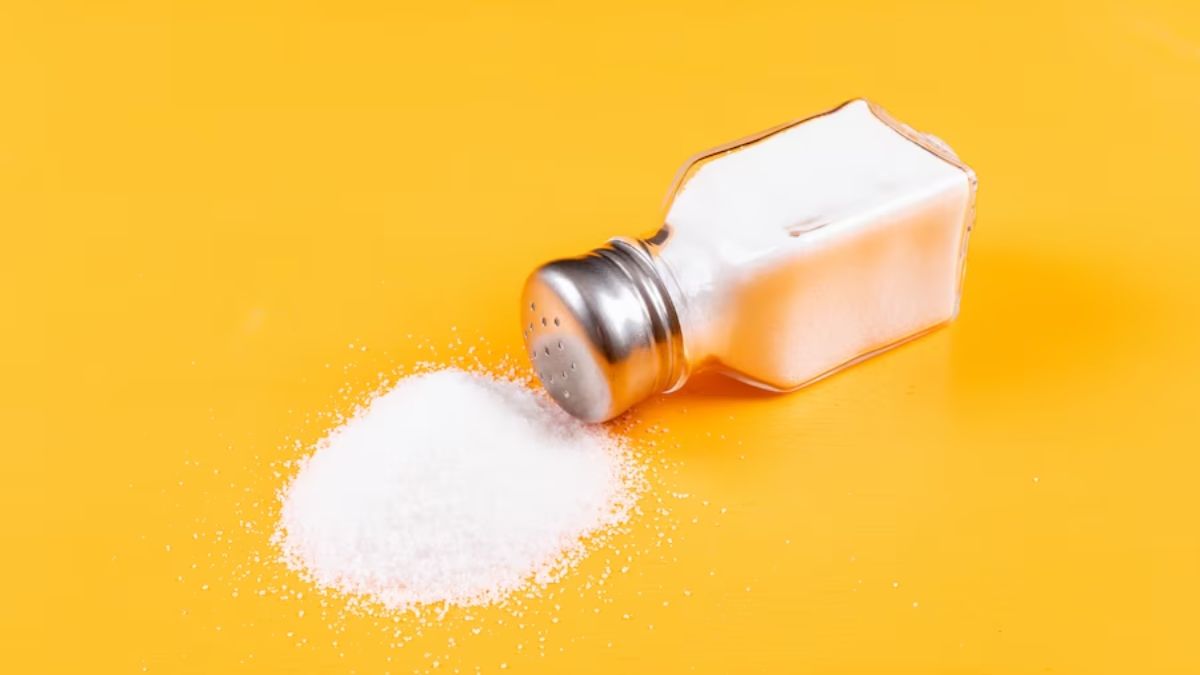- By Prerna Targhotra
- Mon, 06 Feb 2023 08:20 AM (IST)
- Source:JND
Sodium is an essential nutrient necessary for the maintenance of plasma volume, acid-base balance, transmission of nerve impulses and normal cell function. It is found naturally in a variety of foods, such as milk, meat and shellfish. It is also found often in high amounts in processed foods such as bread, processed eat and snack foods. Salt in our diet comes from processed foods, as they are high in salt and are frequently consumed in large amounts daily. Most people consume too much salt on average 9–12 grams per day, or around twice the recommended maximum level of intake.
According to Healthline, eating too much salt at once, either in a single meal or over a day, can have some severe health consequences. The rise in blood pressure, intense thirst, increased risk of stomach cancer and risk of heart disease and premature death are some consequences of consuming too much salt regularly. Therefore, one should limit the intake of salt amounts from their regular diet. Read below some important reasons why you should cut off or limit the salt amount from your regular diet.
1. Bloating
According to the Centers for Disease Control and Prevention (CDC), about 90% of people in the United States consume too much sodium. Most processed foods contain sodium, so many people do not realize they are consuming so much.
2. Increased Thirst
The high the amount of salt intake, the more the body needs water. To maintain the sodium levels and keep their balance, the body naturally bonds excess salt with water and excretes it with the urine. The salt in salty foods consists mostly of sodium chloride, which is hygroscopic that is salt that has a strong tendency to absorb water.
3. Increased Blood Pressure
According to the National Library of Medicine, increased salt consumption may provoke water retention, leading to a condition of high flow in the arterial vessels. The mechanism of pressure natriuresis has been proposed as a physiologic phenomenon where an increase in BP in the renal arteries causes increased salt and water excretion.
4. Headaches
Salty processed foods may contain some harmful preservatives, which can trigger migraine in some people. Consuming high levels of sodium can increase blood pressure, leading to headaches or migraine attacks.
5. Eczema
The study published in the Wednesday in Science Translational Medicine states a direct connection between the consumption of high levels of salt and the aggravation of T-helper cells which are the members of the immune system. These T-helper cells can cause hyperactive inflammation and breed allergy-based illnesses, such as arthritis, asthma and eczema.
(Disclaimer: This article is for informational purposes only. It is not a substitute for professional advice, diagnosis or treatment.)

